The Different Types of Wasps Found in the UK
Buzzing around outside in your garden or the outdoor seating area of a business, wasps prove to be something of a menace every summer here in the UK. Whether they’re scaring children who are playing outside or disturbing customers who enjoy sipping their pints in the sunshine, it’s not pleasant to be around any wasp.

But what types of wasps do we have in the UK? Do they all look and act the same? That’s what we’re here to answer this month at Pest Defence, bringing you all the information you need to identify different wasps and understand their behaviour.
Remember, if you’ve found a wasp nest on your property it can be dangerous to try and remove it yourself — always contact the experts for wasp nest removal services.
What are the most common wasps in the UK?
The most common type of wasp in the UK is a title closely held by both the common yellowjacket and the German wasp. We’ll describe them individually in more detail later on in this piece, but they do look quite similar.
In 2019, a citizen science project by University College London (UCL) asked ordinary people to send in the different wasps they found in their gardens and outdoor spaces. Interestingly, it revealed that the German wasp and common yellowjacket both made up 44% of the wasps sent in — jointly the largest proportions.
What do wasps look like?
Wasps can vary in size, shape, colouring and wings, but generally, when someone refers to wasps, it conjures up the image of small, yellow and black buzzing insects.
Distinct in their own way from bees, they share similar colouring but are more slender and less fuzzy, but they do still have a stinger at the end of their abdomen.
What kinds of wasps are in the UK?
As you try to wave away nuisance wasps, you could be forgiven for thinking that every wasp is the same, but we actually have several species of British wasps — as you may have already guessed from the UCL projects we mentioned earlier. Here are the most common wasp species we have on our shores:
Common Yellowjacket –
Vespula vulgaris is roughly 1.5cm long with the typical black and yellow stripes. This species is often the one found bothering you at your picnic for your sugary items, with an aggressive temperament when they feel threatened.
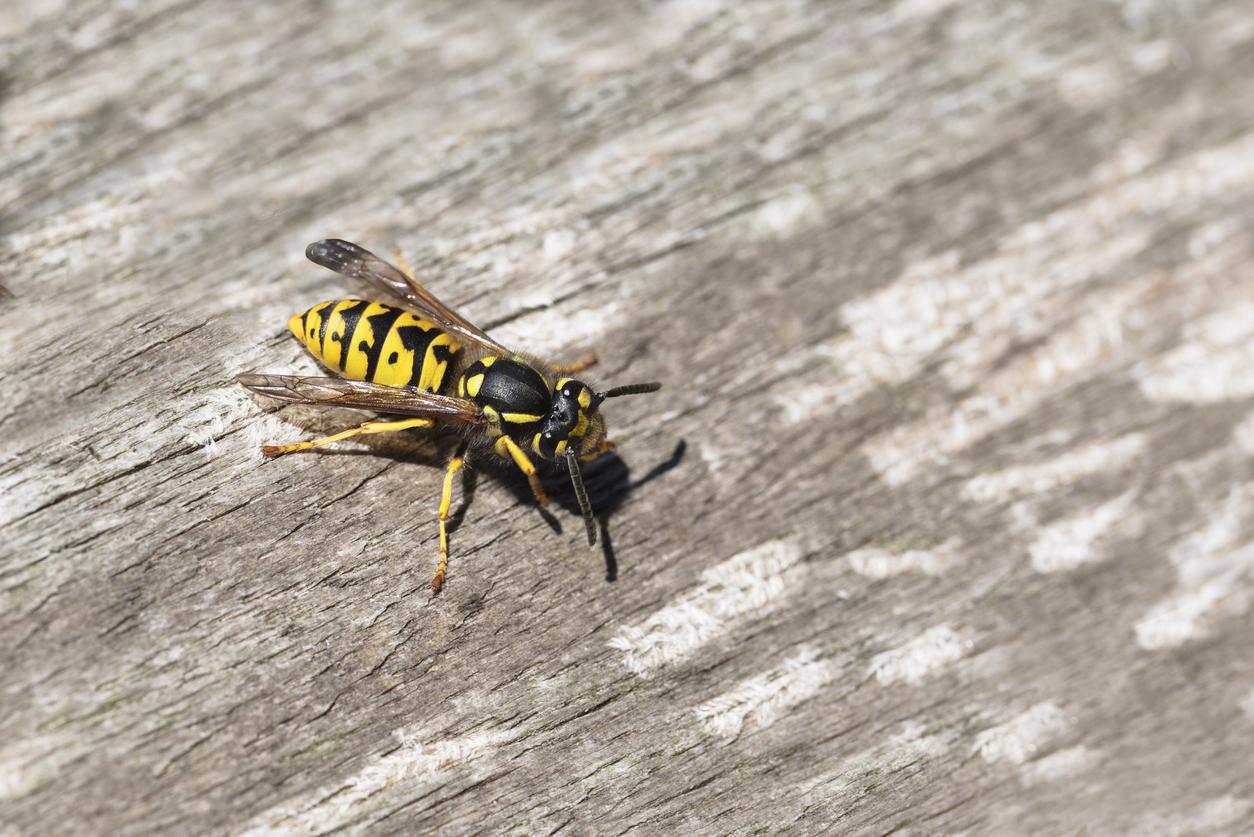
German Wasp –
Vespula germanica is often mistaken for the common yellowjacket but can grow slightly larger. The other way to tell them apart is by the markings on their face, with the German wasp featuring three black dots. Comparatively, this is one of the more aggressive species in the UK (more on this later).
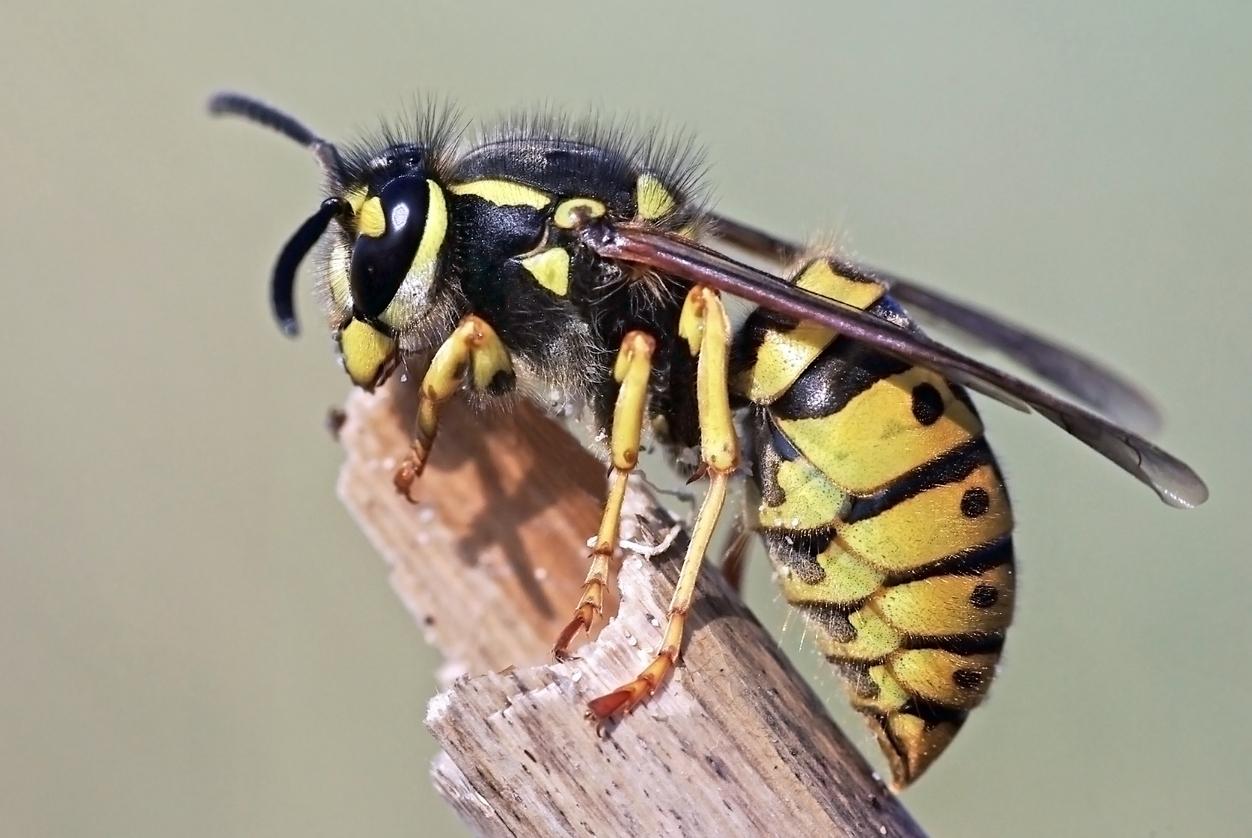
![]()
If you’re struggling with wasps in your home or at your workplace, get in touch with Pest Defence today.
Contact Us
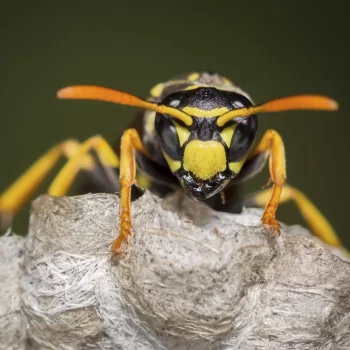
If you’re struggling with wasps in your home or at your workplace, get in touch with Pest Defence today.
European Hornets –
Vespa crabro is a slightly different colour to other wasps, with a yellow and brown appearance. They are much larger than other wasps, however, growing up to around 3cm in length, but are not as aggressive as other species.
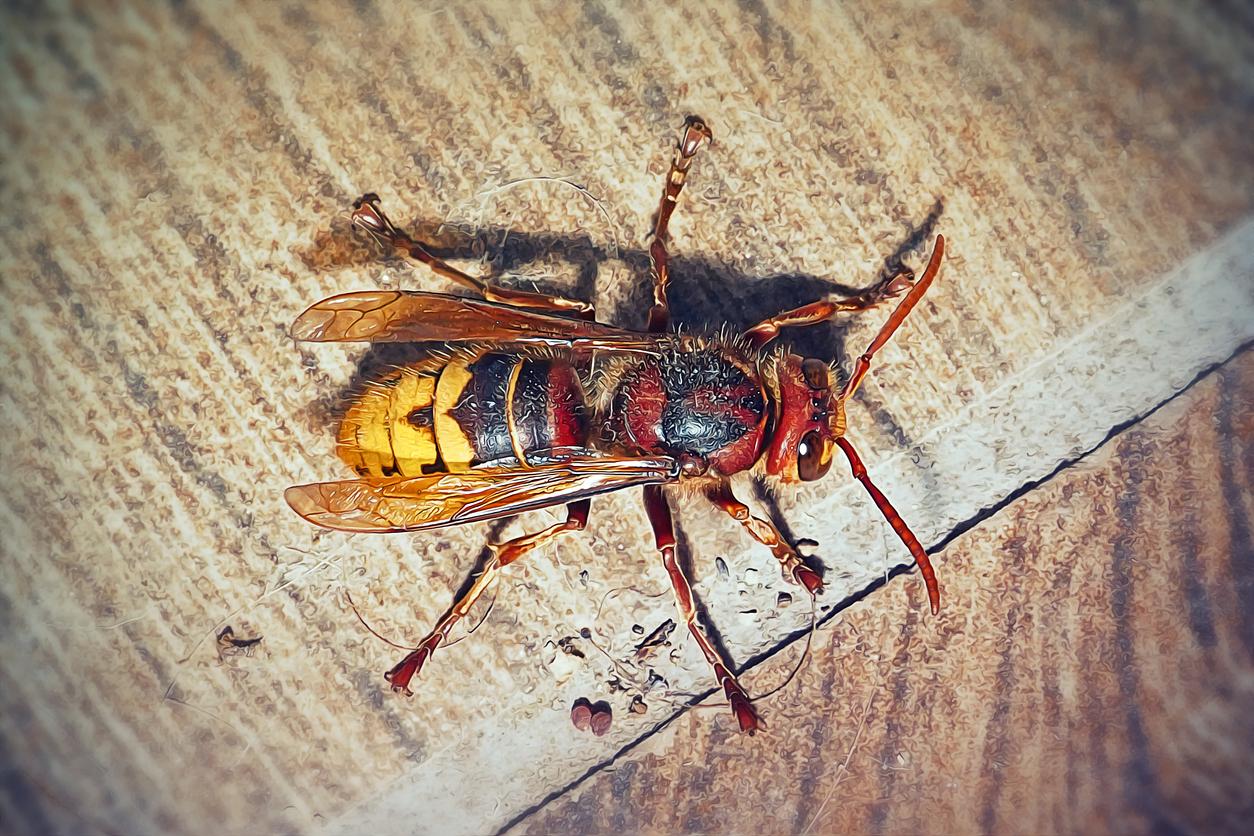
Paper Wasps –
Polistinae are one of the rarer wasp types, with a more slender body and a red or brown colouring. They get their name from their creation of paper-like nests that hang downwards.
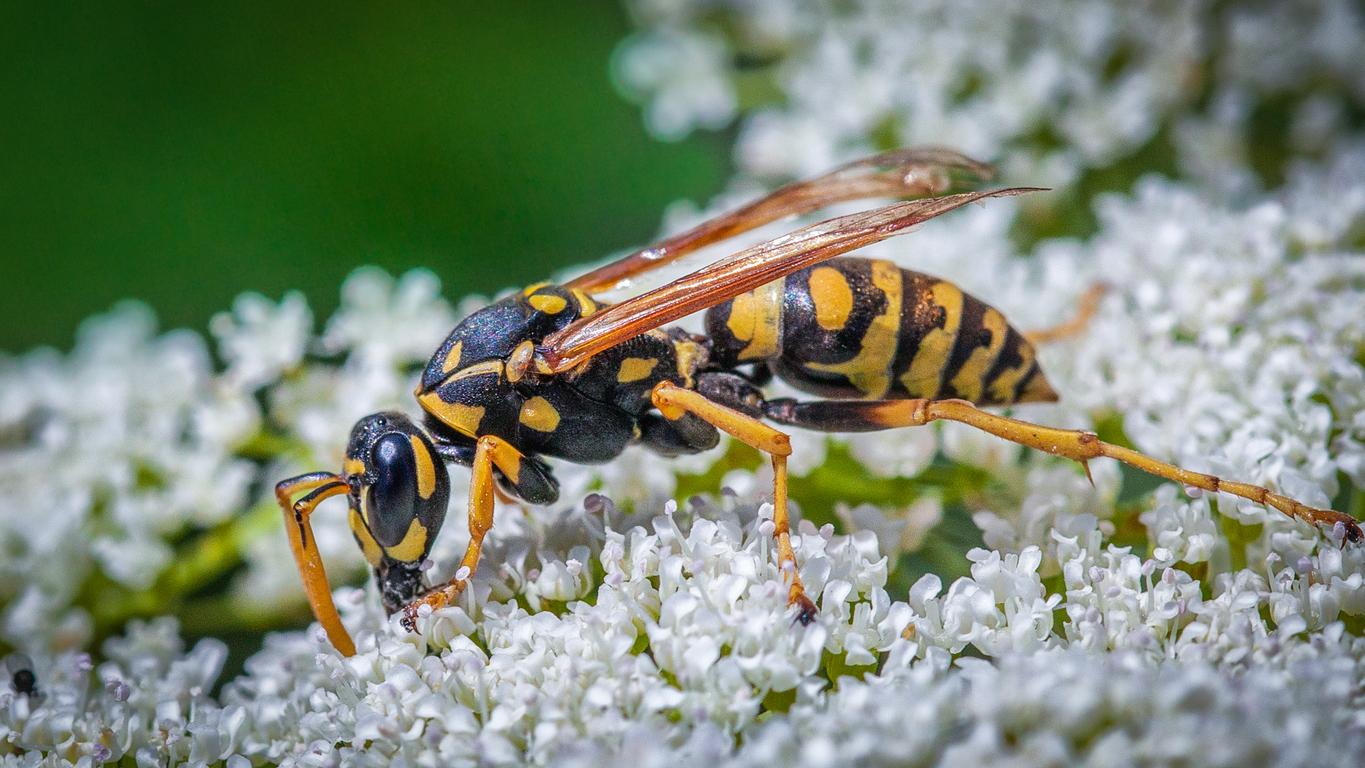
Potter Wasps –
Eumeninae, sometimes referred to as mason wasps, build small, pot-like nests and are more solitary creatures, so less likely to be found swarming. You may be able to identify them through their slender, hourglass bodies.
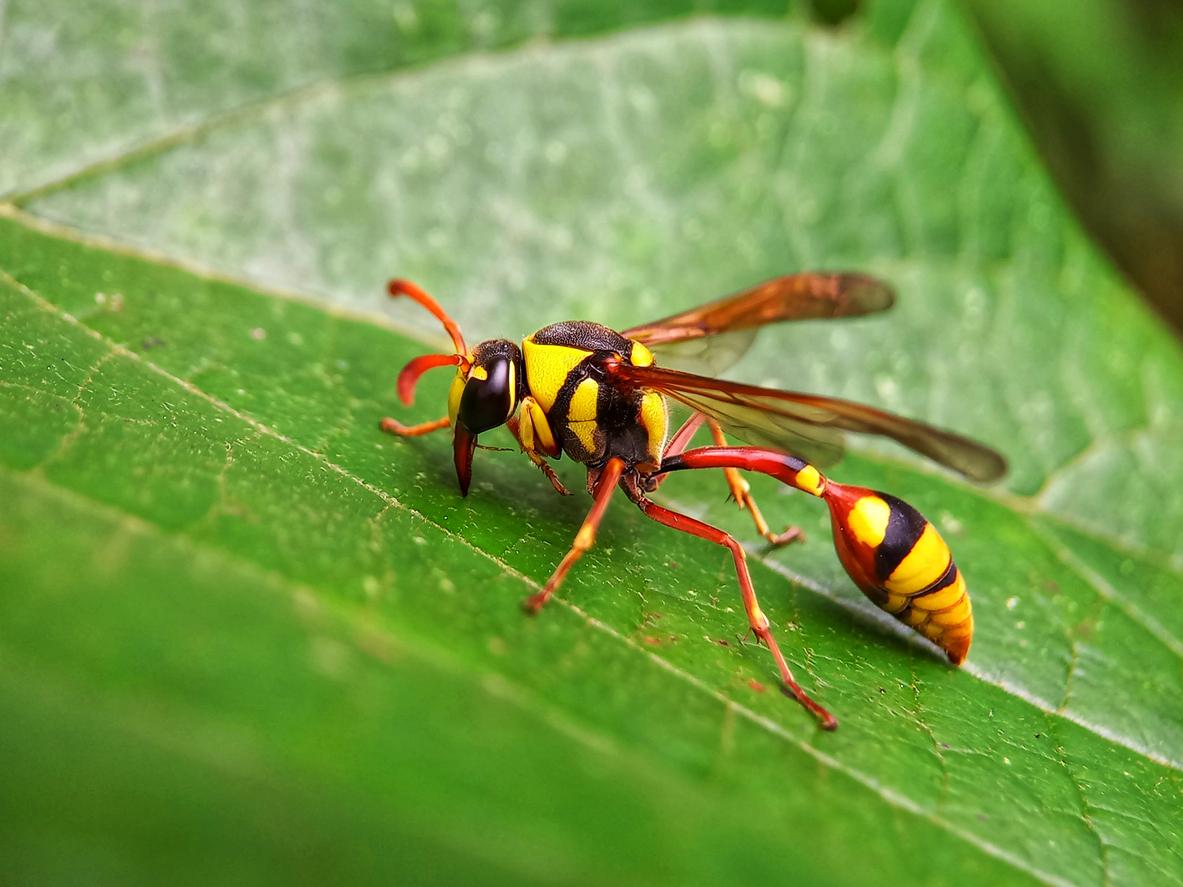
Which is the most aggressive wasp?
While all wasps can sting, as we mentioned above, it’s the German wasp that is likely to be the most aggressive of the species found in the UK.
Whether hunting down food or protecting their nest, they can react aggressively and sting multiple times at a moment’s notice. This is partially where wasps get such a bad reputation, as it will be either the German wasp or common wasp that comes after your fruity cider in the beer garden or seeks sweet treats inside your home.
Trouble with wasps at your home or business? Talk to Pest Defence!
Different wasp species come in varying sizes and colours, and as you can imagine, it’s hard to identify them when they buzz by so quickly. But regardless of which wasp type you believe has infested your home or business, don’t let them ruin your summer.
If you have an issue with wasps, or suspect there is a wasp nest on your property, then don’t hesitate to call our professional team here at Pest Defence. We carry out the safe removal of wasp nests and hornet nests to eradicate the threat they pose to your business or your loved ones.
Call today for expert assistance with any wasp control requirements in London and Essex, including in and around Colchester, Chelmsford and Brentwood.
